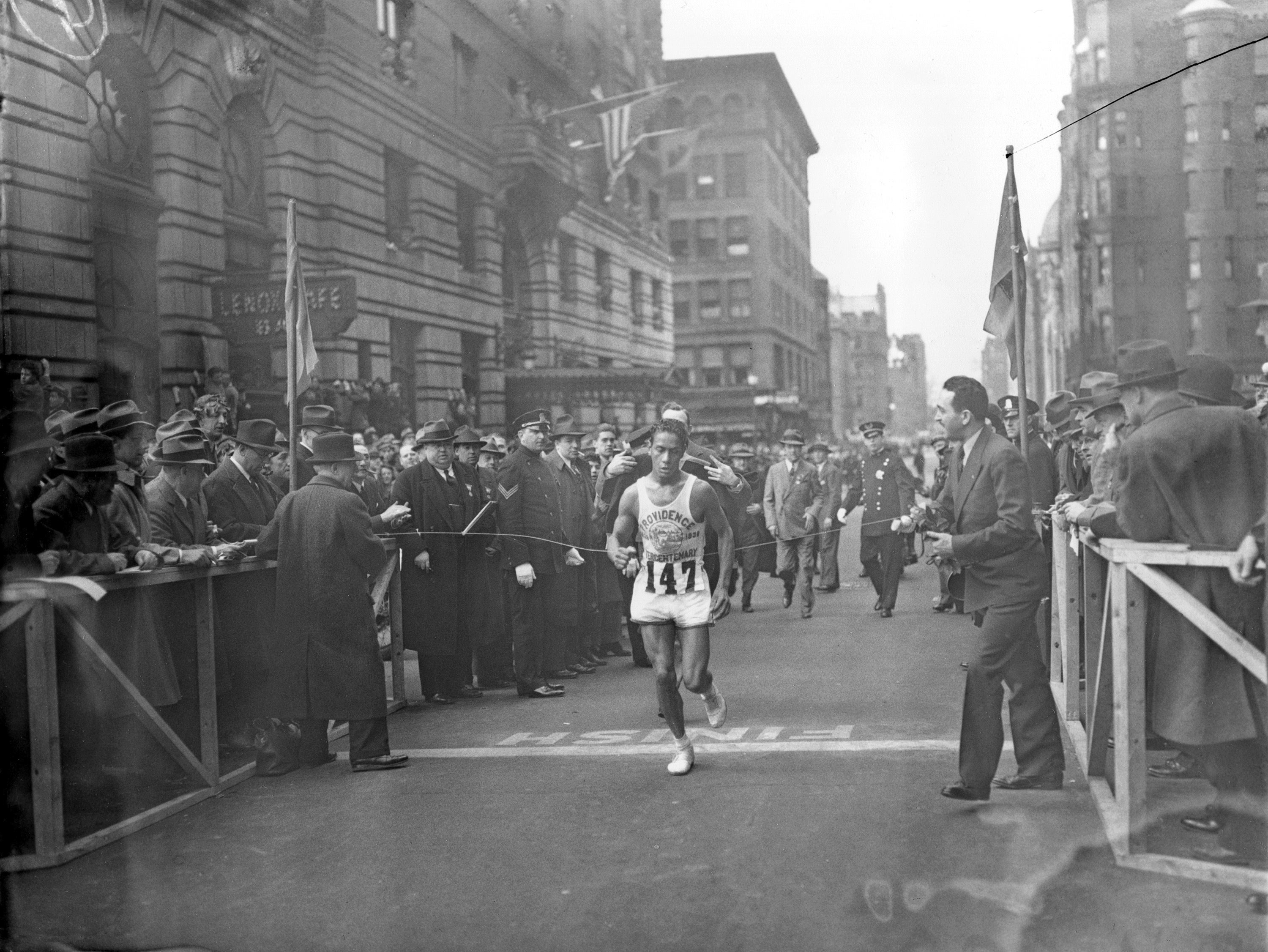Boston Marathon paying tribute to 2-time Indigenous champion
Organizers of the Boston Marathon are seeking to make amends for running the 125th edition on Indigenous Peoples Day by throwing the spotlight on a member of Rhode Island’s Narragansett tribe

Your support helps us to tell the story
From reproductive rights to climate change to Big Tech, The Independent is on the ground when the story is developing. Whether it's investigating the financials of Elon Musk's pro-Trump PAC or producing our latest documentary, 'The A Word', which shines a light on the American women fighting for reproductive rights, we know how important it is to parse out the facts from the messaging.
At such a critical moment in US history, we need reporters on the ground. Your donation allows us to keep sending journalists to speak to both sides of the story.
The Independent is trusted by Americans across the entire political spectrum. And unlike many other quality news outlets, we choose not to lock Americans out of our reporting and analysis with paywalls. We believe quality journalism should be available to everyone, paid for by those who can afford it.
Your support makes all the difference.Organizer of the Boston Marathon publicly apologized for running the 125th edition of the planet's most celebrated footrace on Indigenous Peoples Day.
Now they're seeking to make amends by throwing the spotlight on a member of Rhode Island s Narragansett tribe who won the race twice in the 1930s and inspired the name “Heartbreak Hill” to describe the most iconic — and dreaded — section of the course.
The Boston Athletic Association, which administers the marathon, said Monday it will honor the legacy of the late Ellison “Tarzan” Brown, Boston's champion in 1936 and 1939, in the run-up to the race's pandemic-altered Oct. 11 staging.
The Boston Marathon traditionally is held in mid-April on Massachusetts’ unique Patriots Day holiday. In 2020, it was canceled in its traditional format for the first time because of the coronavirus pandemic, and because of a resurgence of COVID-19 cases, it's being run this year in the autumn rather than the spring.
Next month's running falls on Indigenous Peoples Day — observed in some places as an alternative to Columbus Day — and that rankled enough people for the BAA in August to issue “sincere apologies to all Indigenous people who have felt unheard or feared the importance of Indigenous Peoples’ Day would be erased.”
Massachusetts does not officially recognize Indigenous Peoples Day, but Newton — which lies on the marathon course — does.
Eighty-five years after his historic first win, Brown's descendants cheered the recognition of their acclaimed ancestor.
“Running and winning the Boston Marathon was something grandpa loved," said Anna Brown-Jackson, a granddaughter of Brown.
“Being an Indigenous person meant everything to Grandpa because he was very competitive to begin with,” she said. “If someone told him he couldn’t do something, whether it was winning the marathon or crossing through a path of land to gather shellfish for his family, he’d make sure to prove them wrong and do it.”
Patti Catalano Dillon, a member of the Mi’kmaq tribe, a three-time Boston Marathon runner-up and a former American marathon record holder, also will be honored at next month’s race.
Brown, whose tribal nickname was Deerfoot, set a world record with his second victory at Boston and represented the U.S. in Hitler’s 1936 Olympics in Berlin alongside the great Jesse Owens.
But he's best known for bursting onto America's nascent distance running scene in his initial victory in 1936, when multiple Boston champion Johnny Kelley was heavily favored to win.
Media reports from 1936 say Brown had established a commanding lead in the 26.2-mile (42.2-kilometer) race when Kelley caught him near the 20-mile (32-kilometer) mark in the Newton hills. Kelley, it's said, gave Brown a patronizing pat on the back as if to say, “Nice try — I’ll take it from here."
That backfired badly. Brown took off, leaving Kelley in his dust and breaking his heart.
“He ran like a bat out of hell,” The Boston Globe reported at the time. Brown won in 2 hours, 33 minutes, 40 seconds; three years later, in his second win, he was the first to break 2:30 with a time of 2:28:51.
Brown became an instant hero to native people across North America But like other top Indigenous athletes of his era, he struggled greatly with discrimination and marginalization.
In 1975, he died at age 60 after he was deliberately run over by a car in the parking lot of a Rhode Island bar.
___
Follow AP New England editor Bill Kole on Twitter at https://twitter.com/billkole.